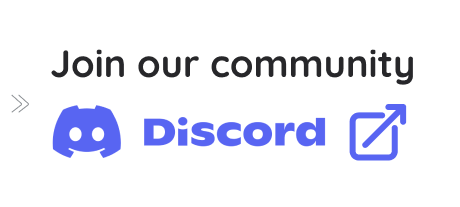Introducing Web3: Cutting Out The Intermediaries
The internet has come a long way since its inception. From a simple platform for exchanging information, it has become a crucial aspect of our lives. We use it for communication, entertainment, shopping, and even for critical tasks like banking and healthcare. However, this centralization has led to several issues, particularly related to data privacy and security. The centralized web has made it easier for corporations and governments to collect and misuse user data. This is where the decentralized web, a.k.a Web3, comes in.
The problem with the centralized web2
The modern internet is extremely centralized; it is mostly owned and managed by a small number of organizations. These businesses provide "free" goods, but the vast majority of their income comes from gathering and renting out user data to marketers. We are the product rather than the consumers as online users.
Nowadays, the websites and services we use are created to get as much of our attention as they can, not with our best interests in mind. Today's web has adopted data collection and addiction as its standard business strategy.
Thankfully, a remedy is being developed on Web3.
What is the Decentralized Web?
The decentralized web, also known as Web3, is an alternative to the centralized web that we are used to. It aims to provide users with a more secure and private online experience. The decentralized web operates on a network of computers, instead of relying on a single server or organization to manage the data. This makes it more difficult for corporations or governments to collect or misuse user data, as all the information is spread out among the network of computers.
Why should we get rid of the middlemen?
It’s hard to build trust online when you don’t know who you are dealing with. Yet, any transaction involves a certain amount of trust, even if you can never be sure who is on the other side of the screen. We have used middlemen to compensate for this uncertainty and encourage confidence. By using intermediaries, or intermediate personnel, people may put their faith in a reputable outsider. In addition to fostering trust, intermediaries assist in connecting people and assisting companies in reaching a broader audience.
These intermediates are present everywhere: banks act as payment intermediaries, DNS acts as a link between people and websites, YouTube and Spotify are intermediaries for content distribution, etc.
Unsurprisingly, hackers frequently target these big data sets. Despite the fact that these businesses use many levels of protection to prevent sensitive data from falling into the wrong hands, data breaches are still a real threat. After Facebook was breached in April 2021, 533 million users' personal data was taken and made available to cybercriminals. All 3 billion of Yahoo's user accounts were compromised as a result of the notorious hack that occurred in 2013.
Every year, there are hundreds of data breaches, which expose millions of records. And those figures are only increasing. The consequences of these data breaches increase along with our dependency on the internet.
The decentralized alternatives
One of the most well-known decentralized web technologies is blockchain. Blockchain is a decentralized, public ledger that records all transactions in a secure and transparent manner. This technology is the backbone of cryptocurrencies like Bitcoin and Ethereum. It has also been used in other applications, such as supply chain management, voting systems, and real estate.
Another example of decentralized web technology is the InterPlanetary File System (IPFS). IPFS is a peer-to-peer file sharing network that allows users to store and share files without the need for a central server. IPFS has several advantages over traditional file sharing networks, including increased security, faster download speeds, and the ability to host websites without the need for a web server.
The benefits of Web3 without the intermediaries
Decentralized Architecture
The first key benefit of Web3 is its decentralized architecture. Unlike the traditional web, where data is stored in centralized servers, in Web3, data is distributed among a network of computers. This makes it much harder for hackers or government agencies to access and misuse data, as there is no single point of failure. Decentralization also helps prevent censorship, as there is no central authority controlling the flow of information.
For instance, a user's personal data, such as their identity, transactions, and social media activity, is stored on their own device, in a secure and encrypted format. This is made possible through the use of blockchain technology, which provides a tamper-proof and transparent ledger of all transactions. As a result, users are in control of their own data, and have the power to decide who has access to it and how it is used.
Improved Security
Another benefit of Web3 is improved security. With decentralized networks, there is no central point of control, making it much harder for hackers to access sensitive data. Additionally, blockchain technology provides a secure and encrypted environment for data storage and transmission.
Within Web3, users can securely store and transfer assets, such as digital currencies, without the need for intermediaries. The decentralized and transparent nature of the network makes it extremely difficult for fraudsters or cybercriminals to manipulate the system or steal assets. Moreover, the use of cryptographic signatures and secure key management ensures that only authorized users have access to sensitive data.
User Empowerment
Web3 empowers users by giving them control over their own data. This is a significant shift from the traditional web, where users are at the mercy of corporations and government agencies that control and monetize their data.
In Web3, users can choose to monetize their data by selling access to it to interested parties, such as advertisers. They can also use their data to participate in decentralized applications, such as social media platforms, and receive rewards for their contributions. Furthermore, the use of blockchain technology ensures that all transactions are transparent and auditable, providing users with a high degree of trust and confidence in the system.
Fair payment
Apps on Web3 can also be decentralized. These open-source, decentralized programs, or dapps, run on the blockchain.
A significant change in the creative industry is the potential of dapps to pay creators directly for their work and give them control over the platforms they use. This is particularly true in the music industry, where middlemen continue to control the majority of sales and decision-making. Any application may use this similar technique of ownership and value distribution; soon, decentralized alternatives to popular sites like YouTube and Instagram will start to gain ground.
WowDAO to reap the benefits of Web3
WowDAO, the first DAO for the global AI community, was created with the awareness of how beneficial Web3 can be and the belief that the future of AI lies in a fair and user-controlled community.
While still at early stage of development, WowDAO aims to make a big impact in the AI industry and the first step towards this goal is to launch the Worldwide AI Hackathon. This event is not only an opportunity to showcase the talent of AI enthusiasts from all over the world but also a starting point for WowDAO to bring together a community of like-minded individuals and organizations that believe in the potential of a decentralized AI community. By participating in Worldwide AI Hackathon, you’ll get to see how WowDAO comes together and be directly involved in its development.
Join Worldwide AI Hackathon and be part of the change!










